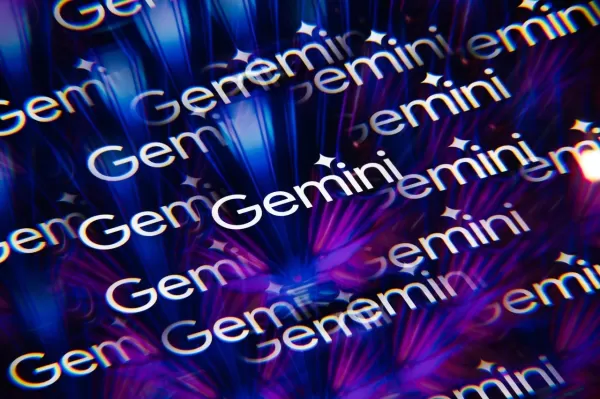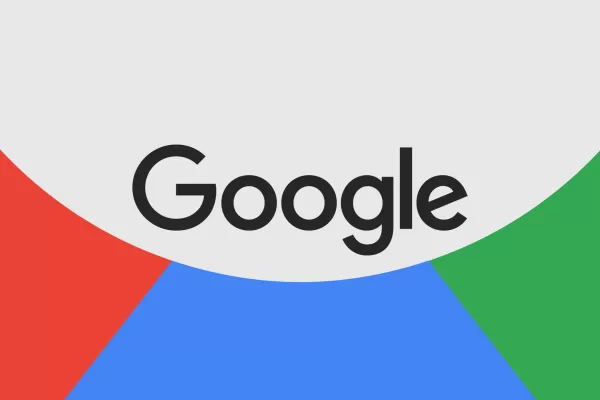Google Officially Replaces Assistant with Gemini - Only One Way to Retain It

After just nine years, Google has decided to retire its Assistant, signaling a significant shift in its AI strategy. Last fall, Google announced that it would replace the default Android assistant, Assistant, with Gemini. Although users could still opt to use Assistant, that choice is now disappearing, and everyone will need to transition to Gemini.
Google made this clear in a recent blog post, stating, "Later this year, the classic Google Assistant will no longer be accessible on most mobile devices or available for new downloads on mobile app stores." This means that if you've set up routines or reminders using Assistant, you'll have to recreate them with Gemini.
It's not just phones that are making the switch. Google has plans to bring Gemini to a range of devices, including tablets, cars, connected devices like watches and headphones, home devices such as speakers and displays, and even TVs in the coming months.
The only way to continue using Assistant is if your device falls below the new minimum requirements, which include at least 2GB of RAM and running Android 10 or later.
Google reports that millions have already transitioned to Gemini, which is now available in over 40 languages and more than 200 countries. So, why the change? Google aims for Gemini to surpass Assistant's capabilities.
They've been gradually enabling Gemini to handle basic tasks like setting timers, playing media, setting reminders, and controlling smart home devices, all of which Assistant could do. But Google's vision for Gemini goes beyond these functionalities. They want an assistant that can seamlessly interact with other apps and services, understand your environment, boost your productivity and creativity, and, importantly, offer a more personalized experience. At the heart of this vision is artificial intelligence.
Related article
 AI Transforms Education: How Artificial Intelligence Enhances Student Learning
The education sector is undergoing a profound transformation as artificial intelligence becomes increasingly integrated into learning environments. AI technologies are revolutionizing teaching methodologies, personalizing student experiences, and str
AI Transforms Education: How Artificial Intelligence Enhances Student Learning
The education sector is undergoing a profound transformation as artificial intelligence becomes increasingly integrated into learning environments. AI technologies are revolutionizing teaching methodologies, personalizing student experiences, and str
 Google Denies AI Search is Harming the Web's Integrity
Google Defends AI Search Features Amid Traffic ConcernsGoogle maintains its AI-powered search enhancements haven't negatively impacted overall website traffic, despite emerging reports suggesting otherwise. Liz Reid, Head of Google Search, explained
Google Denies AI Search is Harming the Web's Integrity
Google Defends AI Search Features Amid Traffic ConcernsGoogle maintains its AI-powered search enhancements haven't negatively impacted overall website traffic, despite emerging reports suggesting otherwise. Liz Reid, Head of Google Search, explained
 Amazon hits milestone with one million robots deployed, launches new generative AI model
Amazon Reaches Robot Workforce Milestone in WarehousesAfter thirteen years of robotic integration, Amazon has achieved a significant automation breakthrough. The e-commerce giant confirmed it now operates one million robots across its global warehous
Comments (5)
0/200
Amazon hits milestone with one million robots deployed, launches new generative AI model
Amazon Reaches Robot Workforce Milestone in WarehousesAfter thirteen years of robotic integration, Amazon has achieved a significant automation breakthrough. The e-commerce giant confirmed it now operates one million robots across its global warehous
Comments (5)
0/200
![EricLewis]() EricLewis
EricLewis
 April 29, 2025 at 7:58:27 PM EDT
April 29, 2025 at 7:58:27 PM EDT
¿Google reemplazando Assistant por Gemini? ¡Eso es un movimiento audaz! Me gustaba bastante el antiguo Assistant, pero si Gemini es mejor, estoy dispuesto a probarlo. Solo espero que no lo hagan demasiado complicado. ¡Veamos cómo este nuevo AI cambia las cosas! 🚀


 0
0
![CarlLopez]() CarlLopez
CarlLopez
 April 29, 2025 at 1:36:48 PM EDT
April 29, 2025 at 1:36:48 PM EDT
Google replacing Assistant with Gemini? That's a bold move! I kinda liked the old Assistant, but if Gemini is better, I'm down to try it. Just hope they don't make it too complicated. Let's see how this new AI shakes things up! 🚀


 0
0
![KennethKing]() KennethKing
KennethKing
 April 29, 2025 at 11:53:22 AM EDT
April 29, 2025 at 11:53:22 AM EDT
Google substituindo o Assistant pelo Gemini? Isso é uma jogada ousada! Eu meio que gostava do antigo Assistant, mas se o Gemini for melhor, estou disposto a experimentar. Só espero que não o tornem muito complicado. Vamos ver como esse novo AI vai mexer com as coisas! 🚀


 0
0
![RalphSanchez]() RalphSanchez
RalphSanchez
 April 28, 2025 at 11:54:28 PM EDT
April 28, 2025 at 11:54:28 PM EDT
구글이 어시스턴트를 제미니로 교체한다고? 대담한 결정인데! 예전 어시스턴트도 나름 좋았는데, 제미니가 더 나으면 써볼게요. 너무 복잡해지지 않길 바래요. 이 새로운 AI가 어떻게 변화를 줄지 기대돼요! 🚀


 0
0
![WillGarcía]() WillGarcía
WillGarcía
 April 28, 2025 at 2:46:11 PM EDT
April 28, 2025 at 2:46:11 PM EDT
GoogleがAssistantをGeminiに置き換えるなんて大胆な決断だね!昔のAssistantも好きだったけど、Geminiの方が良ければ試してみるよ。ただ、使いづらくならないといいな。この新しいAIがどう変えるか楽しみだ!🚀


 0
0

After just nine years, Google has decided to retire its Assistant, signaling a significant shift in its AI strategy. Last fall, Google announced that it would replace the default Android assistant, Assistant, with Gemini. Although users could still opt to use Assistant, that choice is now disappearing, and everyone will need to transition to Gemini.
Google made this clear in a recent blog post, stating, "Later this year, the classic Google Assistant will no longer be accessible on most mobile devices or available for new downloads on mobile app stores." This means that if you've set up routines or reminders using Assistant, you'll have to recreate them with Gemini.
It's not just phones that are making the switch. Google has plans to bring Gemini to a range of devices, including tablets, cars, connected devices like watches and headphones, home devices such as speakers and displays, and even TVs in the coming months.
The only way to continue using Assistant is if your device falls below the new minimum requirements, which include at least 2GB of RAM and running Android 10 or later.
Google reports that millions have already transitioned to Gemini, which is now available in over 40 languages and more than 200 countries. So, why the change? Google aims for Gemini to surpass Assistant's capabilities.
They've been gradually enabling Gemini to handle basic tasks like setting timers, playing media, setting reminders, and controlling smart home devices, all of which Assistant could do. But Google's vision for Gemini goes beyond these functionalities. They want an assistant that can seamlessly interact with other apps and services, understand your environment, boost your productivity and creativity, and, importantly, offer a more personalized experience. At the heart of this vision is artificial intelligence.
 AI Transforms Education: How Artificial Intelligence Enhances Student Learning
The education sector is undergoing a profound transformation as artificial intelligence becomes increasingly integrated into learning environments. AI technologies are revolutionizing teaching methodologies, personalizing student experiences, and str
AI Transforms Education: How Artificial Intelligence Enhances Student Learning
The education sector is undergoing a profound transformation as artificial intelligence becomes increasingly integrated into learning environments. AI technologies are revolutionizing teaching methodologies, personalizing student experiences, and str
 Google Denies AI Search is Harming the Web's Integrity
Google Defends AI Search Features Amid Traffic ConcernsGoogle maintains its AI-powered search enhancements haven't negatively impacted overall website traffic, despite emerging reports suggesting otherwise. Liz Reid, Head of Google Search, explained
Google Denies AI Search is Harming the Web's Integrity
Google Defends AI Search Features Amid Traffic ConcernsGoogle maintains its AI-powered search enhancements haven't negatively impacted overall website traffic, despite emerging reports suggesting otherwise. Liz Reid, Head of Google Search, explained
 April 29, 2025 at 7:58:27 PM EDT
April 29, 2025 at 7:58:27 PM EDT
¿Google reemplazando Assistant por Gemini? ¡Eso es un movimiento audaz! Me gustaba bastante el antiguo Assistant, pero si Gemini es mejor, estoy dispuesto a probarlo. Solo espero que no lo hagan demasiado complicado. ¡Veamos cómo este nuevo AI cambia las cosas! 🚀


 0
0
 April 29, 2025 at 1:36:48 PM EDT
April 29, 2025 at 1:36:48 PM EDT
Google replacing Assistant with Gemini? That's a bold move! I kinda liked the old Assistant, but if Gemini is better, I'm down to try it. Just hope they don't make it too complicated. Let's see how this new AI shakes things up! 🚀


 0
0
 April 29, 2025 at 11:53:22 AM EDT
April 29, 2025 at 11:53:22 AM EDT
Google substituindo o Assistant pelo Gemini? Isso é uma jogada ousada! Eu meio que gostava do antigo Assistant, mas se o Gemini for melhor, estou disposto a experimentar. Só espero que não o tornem muito complicado. Vamos ver como esse novo AI vai mexer com as coisas! 🚀


 0
0
 April 28, 2025 at 11:54:28 PM EDT
April 28, 2025 at 11:54:28 PM EDT
구글이 어시스턴트를 제미니로 교체한다고? 대담한 결정인데! 예전 어시스턴트도 나름 좋았는데, 제미니가 더 나으면 써볼게요. 너무 복잡해지지 않길 바래요. 이 새로운 AI가 어떻게 변화를 줄지 기대돼요! 🚀


 0
0
 April 28, 2025 at 2:46:11 PM EDT
April 28, 2025 at 2:46:11 PM EDT
GoogleがAssistantをGeminiに置き換えるなんて大胆な決断だね!昔のAssistantも好きだったけど、Geminiの方が良ければ試してみるよ。ただ、使いづらくならないといいな。この新しいAIがどう変えるか楽しみだ!🚀


 0
0





























